She topped the R&B chart six times with "This Will Be," "Inseprable," "Sophisticated Lady (She's a Different Lady)," "I've Got Love On My Mind," "Our Love" and "Miss You Like Crazy" all hitting number one.
In addition to those hits, she had 19 other songs that charted on the R&B top forty -- including her comedback hits "Dangerous" and "A Little Bit of Heaven."
It was the DANGEROUS album that touched off her come back and led to the crossover success of 1987's EVERLASTING with hits like "Jump Start," "I Live For Your Love," "When I Fall In Love" and Bruce Springsteen's "Pink Cadillac."
For all the crossover pop success of EVERLASTING, it was DANGEROUS where she demonstrated she was back with confident performances such as on Graham Lyle and Richard Kerr's "A Little Bit Of Heaven" (above).
She emerged in the 70s and established herself quickly as a rival to Aretha Franklin.
As Aretha's Atlantic Record days were misfiring, Natalie's success grew.
Then in 1976, she won the Grammys Aretha Franklin Award.
It wasn't called that. It was called Best Female R&B Vocal Performance.
But 1968 through 1975 saw Aretha win it every year.
Then Natalie won it in 1976. And again in 1977.
Aretha was indulgent (and I'd say kind -- I know Aretha and I knew Natalie) especially when you consider that Natalie, like many newly crowned young performers, had a thing or two to learn about winning graciously.
For most of the second half of the seventies, Natalie made statements attempting to stir up a public fight with Aretha. Aretha confronted her in person but otherwise took it in stride.
Natalie's drug problems took her to a place few recover from.
But she was strong and she returned a much stronger singer. She also had a little more wisdom -- the kind only living can bring.
She was a first rate artist and she will be missed.
AccountsView all
Ruth's "Ruth's Radio Report 2015" went up so be sure to read that. And this was C.I. filling in for Ruth.
Here's Thursday's "Iraq snapshot:"
Thursday, December 31, 2015. Chaos and violence continue, US veterans
and contractors may get justice over burn pits after all, Basra emerges
as a potential new hotspot, Hillary Clinton tries to overcome being a
War Hawk, and much more.
2015 ends today and 2016 starts tomorrow.
2015 ends today and 2016 starts tomorrow.
While West/Apostates fill the skies with million dollar fireworks, skies of Iraq/Syria are filled with Jets & Bombs.
Happy New Year to all in #Kurdistan, #Iraq & the world, hoping an end to sufferings of 2015. 2016 to be a great year for all & end of #ISIS
The end of the year brings good news and bad news.
On the good news side, Tara Copp (STARS AND STRIPES) reports, "A federal district court on Jan. 21 will consider the scope of a lawsuit alleging soldiers’ exposure to burn pits in Iraq and Afghanistan led to serious respiratory illnesses and deaths and whether government contractor KBR, Inc. is responsible for the way the pits were operated."
The burn pits?
"While I was stationed at Balad, I experienced the effects of the massive burn pit that burned 24 hours a day, 7 days a week. The ten-acre pit was located in the northwest corner of the base. An acrid, dark black smoke from the pit would accumulate and hang low over the base for weeks at a time. Every spot on the base was touched by smoke from the pit; everyone who served at the base was exposed to the smoke. It was almost impossible to escape, even in our living units," L. Russell Keith explained to the Democratic Policy Committee November 6, 2009. Keith worked for KBR in Iraq at Joint Base Balad from March 2006 through July 2007. Like many service members and contractors, he was unnecessarily exposed to toxins which put his life at risk.
The Chair of the DPC, Senator Byron Dorgan, noted at the start of that day's hearing, "Today we're going to have a discussion and have a hearing on how, as early as 2002, US military installations in Iraq and Afghanistan began relying on open-air burn pits -- disposing of waste materials in a very dangerous manner. And those burn pits included materials such as hazardous waste, medical waste, virtually all of the waste without segregation of the waste, put in burn pits. We'll hear how there were dire health warnings by Air Force officials about the dangers of burn pit smoke, the toxicity of that smoke, the danger for human health. We'll hear how the Department of Defense regulations in place said that burn pits should be used only in short-term emergency situations -- regulations that have now been codified. And we will hear how, despite all the warnings and all the regulations, the Army and the contractor in charge of this waste disposal, Kellogg Brown & Root, made frequent and unnecessary use of these burn pits and exposed thousands of US troops to toxic smoke."
At that day's hearing, Lt Col Darrin Curtis was among the witnesses and we'll note this exchange he had with Senator Dorgan.
Chair
Byron Dorgan: Mr. Curtis, why did you decide to write the 2006
memorandum? And did anyone else at that point share your concerns about
the health impact of burn pits?
Lt
Col Darrin Curtis: Yes, Senator, they did. The Chief of Air Space
Medicine had the same concerns I did. The memo was initially written so
that we could expedite the installation of the incinerators. From my
understanding, there were spending limits of monies with health issues
and not health issues so I wanted to write the report to show that
there are health issues associated with burn pits so that we could
hopefully accelerate the installation of the incinerators.
Chair Byron Dorgan: Of the type of burn pit you saw in Iraq in 2006 -- that's some while after the war began and infrastructure had been created and so on except without incinerators -- if something of that nature were occurring in a neighborhood here in Washington DC or any American city, what are the consequences to them?
Lt Col Darrin Curtis: At least fines and possibly jail.
Chair Byron Dorgan: Because?
Lt Col Darrin Curtis: Of the regulations that are out there today.
Chair Byron Dorgan: Because it's a serious risk to human health?
Lt Col Darrin Curtis: Yes, sir.
Chair Byron Dorgan: You say that when you arrived in Iraq an inspector for the US Army Center for Health Promotion and Preventive Medicine -- which is CHPPM -- told you that the Balad burn pit was the worst environmental site that he has seen and that included the ten years he had performed environmental clean up for the Army and Defense's Logistic Agency. And yet in your testimony, you also say that CHPPM has done this study and says adverse health risks are unlikely. So you're talking about an inspector from CHPPM that says 'this is the worst I've seen' and then a report comes out later from CHPPM that says: "Adverse health risks are unlikely. Long-term health effects are not expected to occur from breathing the smoke." Contradiction there and why?
Lt Col Darrin Curtis: I think any organization, you're going to have people with differences of opinion. But at CHPPM, I'm sure that was the same-same outcome there. Cause I don't know if that individual --
Chair Byron Dorgan: (Overlapping) Do you think that CHPPM -- do you think CHPPM assessment that's been relied on now is just wrong?
Lt Col Darrin Curtis: (Overlapping) I think -- I think -- Senator, I think the hard line that there is no health effects is a -- is a very strong comment that we don't have the data to say. Do we have the data to say that it is a health risk? I don't think we have that either. But I do not think we have the data to say there is no health risk.
Chair Byron Dorgan: You are a bio-environmental engineer what is -- what is your own opinion? Without testing or data, you saw the burn pits, you were there, you hear the testimony of what went in the burn pits, you hear Dr. Szema's assessment. What's your assessment?
Lt Col Darrin Curtis: I think we're going to look at a lot of sick people later on.
And a lot of people have gotten sick and a lot of people have died.
In October of 2010 the GAO (US Government Accountability Office) released a report [PDF format warning] entitled "AFGHANISTAN AND IRAQ: DOD Should Improve Adherence to Its Guidance on Open Pit Burning and Solid Waste Management." The report opens with:
The military has relied heavily on open pit burning in both conflicts, and operators of burn pits have not always followed relevant guidance to protect servicemembers from exposure to harmful emissions. According to DOD, U.S. military operations in Afghanistan and Iraq generate about 10 pounds of solid waste per soldier each day. The military has relied on open pit burning to dispose of this waste mainly because of its expedience. In August 2010, CENTCOM estimated there were 251 burn pits in Afghanistan and 22 in Iraq.
[. . .]
Lawsuits have been filed in federal court in at least 43 states in which current and former servicemembers have alleged, among other things, that a contractor's negligent management of burn pit operations, contrary to applicable contract provisions, exposed them to air pollutants that subsequently caused serious health problems. The contractor has moved to dismiss the suits, arguing, among other things, that it cannot be held liable for any injuries that may have occurred to service personnel because all its burn pit activities occurred at the direction of the military.
Today, the victims and their loved ones have a chance at justice.
A chance at justice.
The federal district court decision to hear the case is big news.
On the bad news side for veterans?
Homeless veterans still exist in the United States. That's news today -- news for being yet another broken promise.
As David Greene (NPR's MORNING EDITION) noted last week, "The Obama administration says it wants to end homelessness among veterans by the end of this year. Well, that is not going to happen." Anjali Shastry (WASHINGTON TIMES) explains, "Despite five years and billions of dollars, President Obama failed to meet his goal of ending veteran homelessness by 2015, though officials say they have cut the rate by 36 percent and made progress with better care for veterans in communities across the country."
Where to next?
Ramadi?
Must every day be about the media insisting that Ramadi -- today for sure! -- has been liberated at last.
Even though it's still not liberated?
Every day, the limited amount of time the world press spends on Iraq is taken up by tales of Ramadi's liberation.
And so much more gets ignored.
For example?
IRAQI SPRING MC reports counter-terrorism forces in Diyala shot dead a female civilian in front of civilians and Iraqi troops.
Or how about a new flashpoint developing?
IRAQI SPRING MC notes troops being sent to Basra. This comes as NATIONAL IRAQI NEWS AGENCY notes MP Abd al-Salam al-Maliki is calling for the declaration of a state of emergency in Basra arguing the situation there is turning into a crisis.
Instead of that we get more nonsense on Ramadi supposedly being liberated.
Mosul is supposed to be next for liberation.
Mosul is what Prime Minister Haider al-Abadi has declared. But Ahmed Rasheed and Stephen Kalin (REUTERS) note Falluja is in Anbar Province (as is Ramadi) and that it's closer to Baghdad than Mosul. The two report, "Ahmed al-Assadi, a spokesman for the Hashid Shaabi - a coalition of mostly Iranian-backed Shi'ite militias set up to fight Islamic State - said Falluja would likely come before Mosul.
At GLOBAL INSIGHTS today, the question is "Can Iraq's Prime Minister Al-Abadi hold on?" and the analysis notes the Shi'ite tensions al-Abadi faces:
It is unclear how far this can placate the Shia anti-Western hardliners. He recently met with the senior Shia cleric Muqtada al-Sadr who voiced support for Iraq’s embattled PM. Sadr has deep ties with Iran’s Qom establishment and, as one of the few Shia leaders who stayed in Iraq during the years of Saddam’s rule, is popular within the poor Shia community. The Sadrist Movement supports disbanding of the Popular Mobilization Forces and the integration of Shia militias into the national army.
On the other hand, the Badr Brigades – a Shia militia – is a central part of the Popular Mobilization Forces and its leader, Hadi Al-Amiri, has close ties to the Iranian leadership. Al-Amiri is highly critical of the Prime Minister and will continue to use his resources to counteract his authority. The Badr Organization has powerful influence in Iraq’s military and has even commanded units of the national army on the front lines against IS.
Those Shi'ite militias make a lot of threats. For example, Mustafa Saadoun (AL-MONITOR) reports:
On Dec. 1, the Hezbollah Brigades threatened to pursue and target US forces in Iraq, as "they refuse the help of US forces in the war against IS.”
On Sept. 22, some factions of the Popular Mobilization Units, namely the Hezbollah Brigades, the Badr Organization and the League of the Righteous, issued a joint press release warning that a return of US troops to Iraq would be viewed “as renewed occupation of Iraq by the United States.” They further called on the Iraqi government “not to seek help from US forces.”
Hezbollah Brigades spokesman Jaafar al-Husseini told Al-Monitor, “US soldiers are not welcome in Iraq, either as consultants or as members of the international coalition, because to us such troops are hostile and must be opposed.”
Husseini denied any coordination between the Hezbollah Brigades and the international coalition and the Iraqi government.
The threat of targeting US troops in Iraq was not limited to Hezbollah; the head of the Badr Organization and second-in-command of the Popular Mobilization Units, Hadi al-Amri, issued a press statement Sept. 30 that read, “I informed [Prime Minister] Haider al-Abadi that the United States should only back Iraq with weaponry and refrain from participating in combat operations, because we reject their presence on the ground.”
Along with being a challenge to democratic rule as well as Haider al-Abadi's leadership, these thugs are threatening the population. Bill Roggio and David Daoud (LONG WAR JOUNRAL) report:
The Popular Mobilization Force (PMF), the
command assigned by the Iraqi government with organizing militias to
fight the Islamic State, has exceeded the scope of its mission by
attempting to impart changes in society and culture through threats and
force.
This month, the PMF began harassing
Christians in Baghdad by suggesting women wear the hijab, or veil, and
instructing the religious minority not to celebrate Christmas.
The PMF erected posters in several
Baghdad neighborhoods with large numbers of Christians in mid-December,
calling for women there to wear the hijab, multiple witnesses said according to Qenshrin.
The posters were plastered on “churches and monasteries” in the
neighborhoods of “Al Karada, Karadat Maryam, Al Kathmiyeh, Al Sayyideh,
Zeinouneh, and Al Ghadir,” the news service reported.
Turning to the US, Senator Bernie Sanders, former Governor Martin O'Mally and former Secretary of State Hillary Clinton are vying for the Democratic Party's 2016 presidential nomination. Jeffrey Frank (NEW YORKER) notes Hillary's floundering at the most recent debate:
But after serving four years as Secretary of State, facing some of what might be in store for the forty-fifth President, her foreign-policy positions often seem confused, most notably when it comes to dealing with the Islamic State and the politics of the Middle East. You heard that during the pre-Christmas Democratic debate, when ABC’s Martha Raddatz tried to pin down Clinton’s advocacy of a no-fly zone in Syria. “ISIS doesn’t have aircraft, Al Qaeda doesn’t have aircraft,” Raddatz pointed out. “So would you shoot down a Syrian military aircraft or a Russian airplane?” Clinton’s reply was that “I do not think it would come to that. We are already de-conflicting air space.” When Raddatz persisted—“But isn’t that a decision you should make now?”—Clinton said that she favored the no-fly zone “because I think it would help us on the ground to protect Syrians.” She sees the dilemma but seems unwilling to deal with it. Without mentioning Iraq or Libya, Sanders put it clearly when he said, “I worry too much that Secretary Clinton is too much into regime change, and a little bit too aggressive without knowing what the unintended consequences might be…. You’ve got to think about what happens the day after.” Clinton didn’t really have a response.
That Democratic Party debate may have had few viewers but it offered tremendous insight. Ava and I addressed that debate two Sundays ago with "TV: The Hillary Clinton Rules:"
Is it really too much to expect that debate moderators will impose rules?
Or that when one chat hog won't shut up, that they cut her off?
And if she continues yacking after she's been cut off, that they only get firmer?
"Secretary Clinton," Raddatz asked at one point as Hillary was refusing to answer the question and attempting to distract by going to a different topic, "could we stick to gun control?"
Could we?
Stop her.
Shut her down.
Shut any candidate down who cannot follow the rules.
If you're not up to that, you're not up to being a debate moderator.
They're supposed to impose the rules but Raddatz and Muir let Hillary Clinton walk all over them.
"We have to abide by the rules," Muir insisted at one point, before refusing to impose them -- then or at any other time.
In their half-assed way, however, Muir and Raddatz may have provided a public service: Letting the American public see just what a blow hard and ego maniac Hillary has become.
Better they know while there's still a chance to defeat her in a primary.
Today, Sanders met with the press. Kevin Hardy (DES MOINES REGITSER) reports:
"How many hours do we have? I don't want to take you into the new year," Sanders joked. "How do I answer that? What was the most important vote cast in the modern history of America on foreign affairs? Yeah, it was Iraq," Sanders said. "What does Hillary Clinton have to do to convince you that she has significant foreign policy judgment? She cast a vote for the war. I cast a vote against the war."
Sanders, who in a November debate in Des Moines called the Iraq war "one of the worst foreign policy blunders in the history of the United States," often paints Clinton's vote to authorize the war as a major distinction between the two leading Democratic candidates. In her 2008 presidential campaign, Clinton said that the vote was based on faulty intelligence information from the George W. Bush administration and that she wanted to end the war, but she stopped short of saying she regretted the vote She has since called the vote a mistake.
War monger Hillary Clinton also met with the press today. Daymond Steer (CONWAY DAILY SUN) reports:
Conway Daily Sun Publisher Mark Guerringue asked about her vote to support the Iraq War and her actions as secretary of state during the attacks on the diplomatic mission in Benghazi, Libya, in 2012 that led to the death of Ambassador J. Christopher Stevens and three other Americans, two of which were with the CIA.
"With Iraq I have said numerous times that it was a mistake to give George Bush that authority, and I certainly believe as secretary of state I more than represented the best interest of our country," Clinton said. "There is nobody who is 100 percent right on every foreign policy call, and I think my record is one I'm very proud of."
Bernie Sanders supporter H.A. Goodman (SALON) comes up with a list of reasons why he can't support War Hawk Hillary and Iraq is at the top of the list:
1. Why is Clinton more capable of leading our nation than Sanders, if it was Vermont’s senator who voted against Iraq and predicted its outcome, while Clinton calls her vote a “mistake”?
Sorry, the Iraq War can’t simply be referred to as a “mistake.” Too much carnage and global instability have resulted from Iraq to ignore Clinton’s Iraq War vote. In addition, Hillary Clinton visited Iraq with John McCain in 2005. During the visit, not only did Clinton say that the insurgency was failing, but also that Iraq was“functioning quite well.”
In reality, Clinton was again wrong. Iraq was already in a devastating civil war before 2005. According to Iraq Body Count, a total of 23,861 civilians had died in Iraq before Clinton’s visit in 2005; a great many the victims of gun violence that Clinton is fervently against.
In contrast, it was Bernie Sanders, not the New York senator, who warned, “Who will govern Iraq when Saddam Hussein is removed and what role will the U.S. play in ensuing a civil war that could develop in that country?” Sanders was able to predict Iraq’s devastating civil war in 2002, while Clinton was still echoing Cheney’s talking points linking Al Qaeda to Saddam.
As The New York Times wrote in 2007, “Clinton’s linking of Iraq’s leader and Al Qaeda, however, was unsupported by the conclusions of the N.I.E. and other secret intelligence reports that were available to senators before the vote.” Yes, many Democrats forget that Hillary Clinton, like George W. Bush, once linked Saddam Hussain to Al Qaeda.
iraq
 BBC Breaking News
BBC Breaking News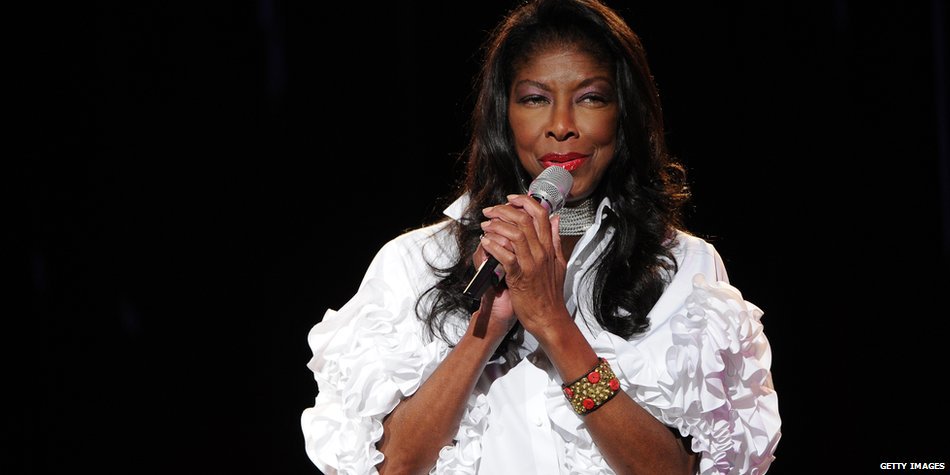

 Last Pirate in LA
Last Pirate in LA People magazine
People magazine
 JazzTimes Magazine
JazzTimes Magazine Reuters Top News
Reuters Top News
 K. Michelle
K. Michelle
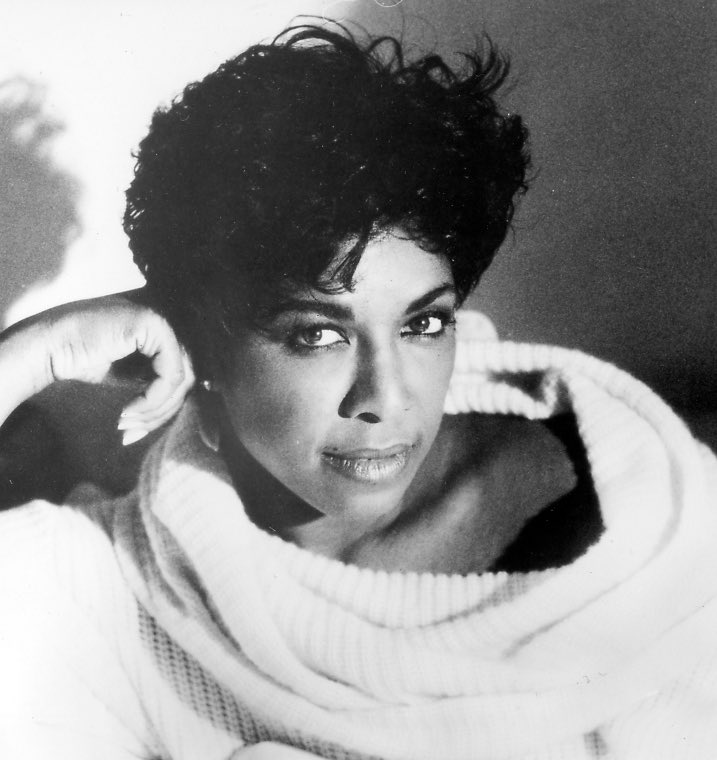
 Vanessa Williams
Vanessa Williams Playbill
Playbill

 Rolling Stone
Rolling Stone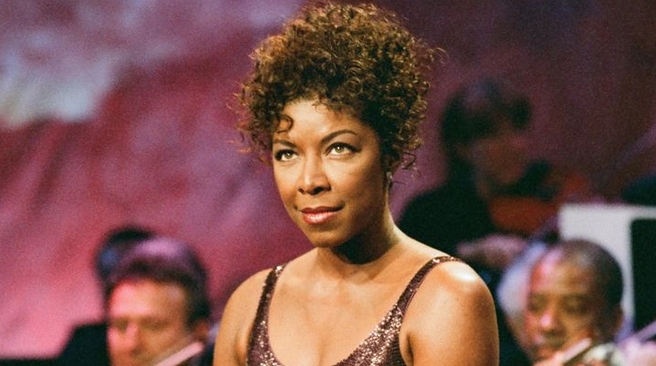
 Lea Salonga
Lea Salonga The Australian
The Australian ᴅᴏʟʟᴀʀ
ᴅᴏʟʟᴀʀ
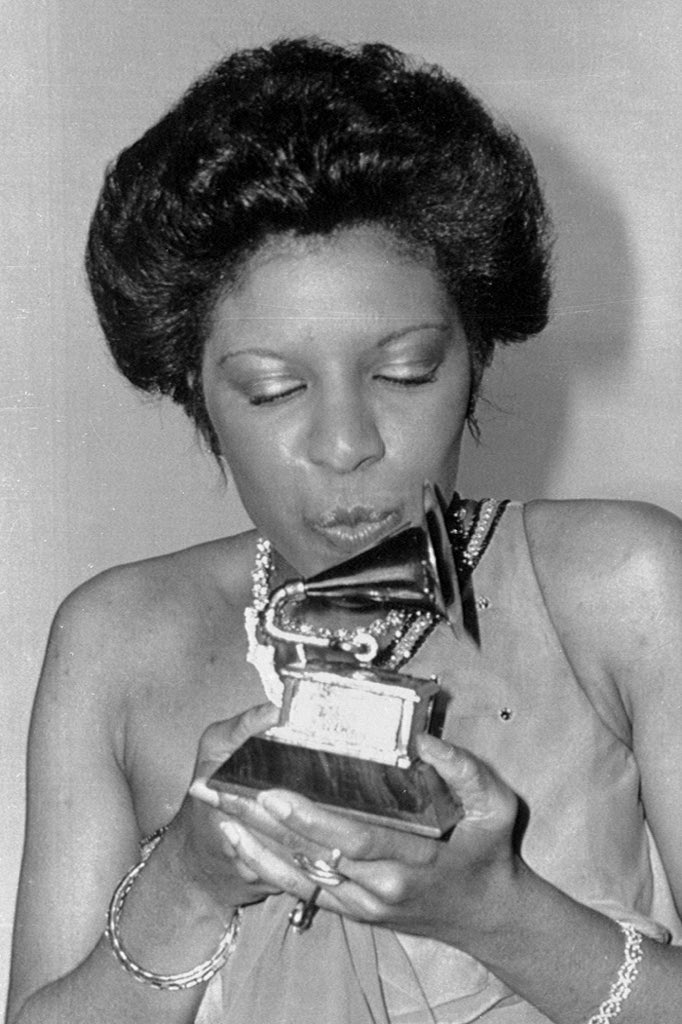
 Viral Buzz News
Viral Buzz News
 Us Weekly
Us Weekly World of Wonder
World of Wonder This will be an everlasting love. RIP to the legendary
This will be an everlasting love. RIP to the legendary  KTLA
KTLA
 Apollo Theater
Apollo Theater
 EBONY MAGAZINE
EBONY MAGAZINE
 Marc Lamont Hill
Marc Lamont Hill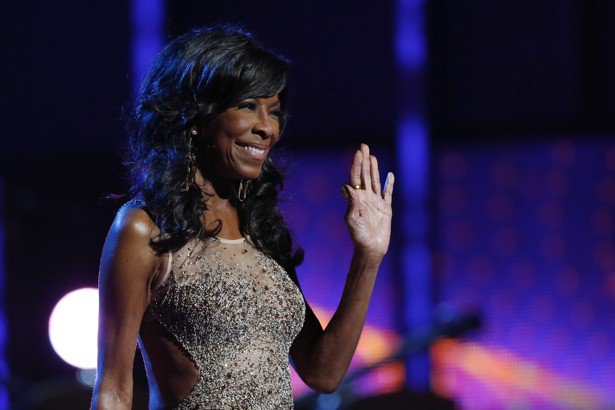
 ١Muslimah
١Muslimah












 Dr. Mahmoud Othman
Dr. Mahmoud Othman